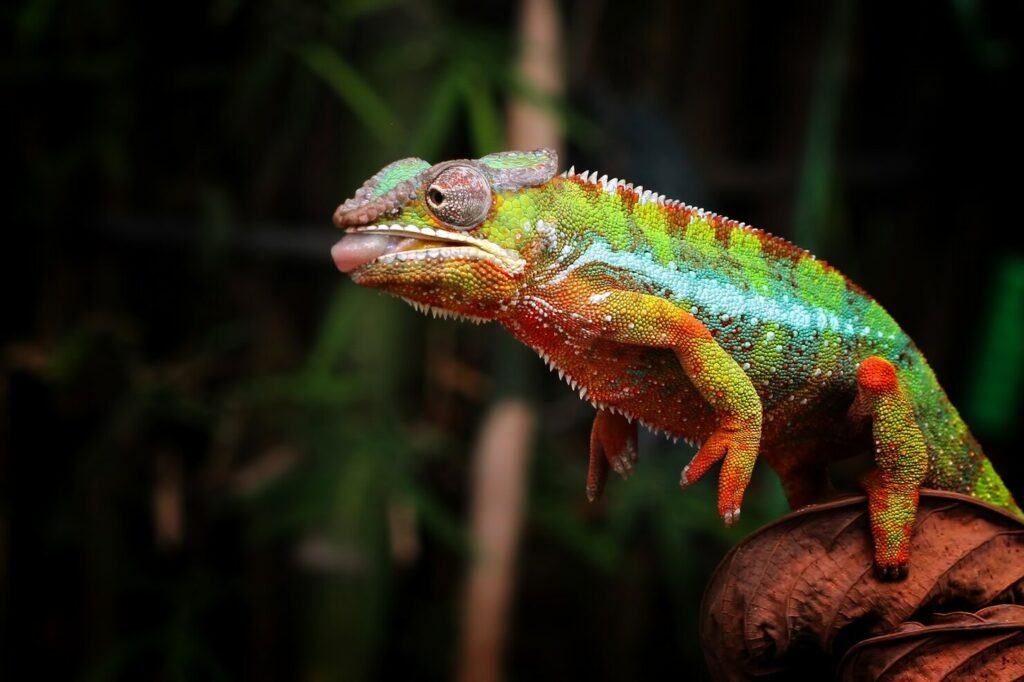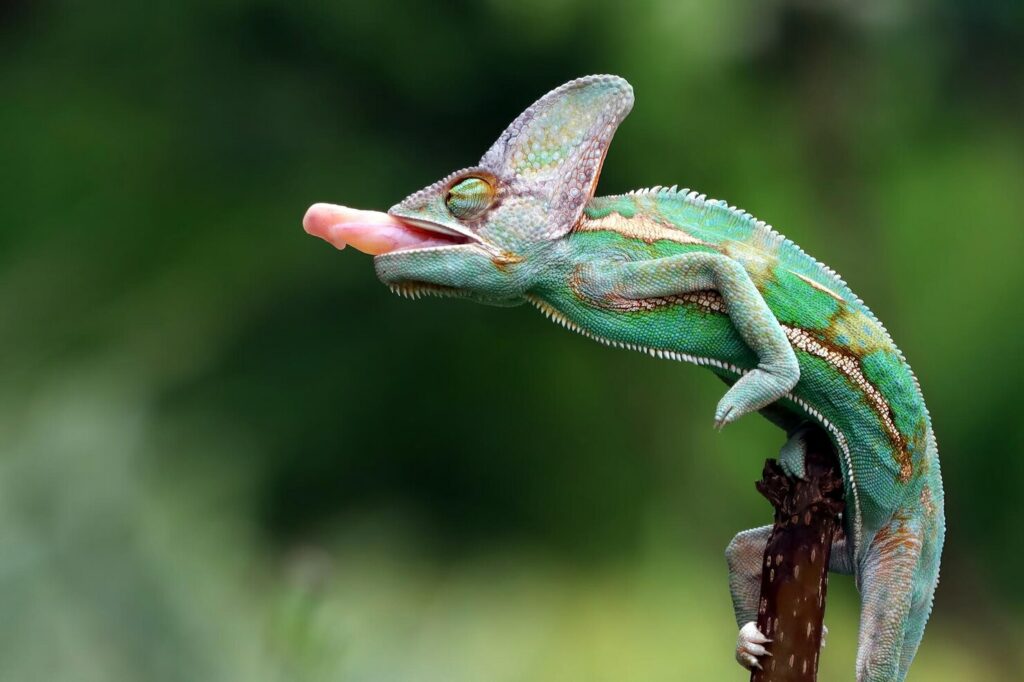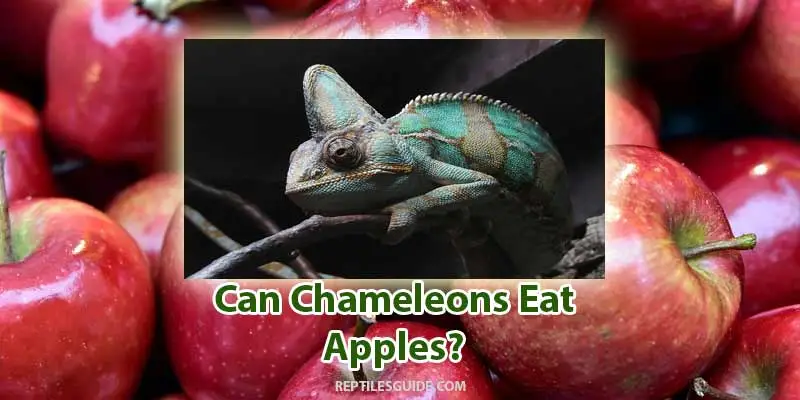Chameleons, with their remarkable ability to change color and their captivating appearance, are fascinating creatures that often pique our curiosity. As reptile enthusiasts and pet owners, we want to ensure that our chameleons are not only healthy but also enjoy a well-rounded diet. But Can Chameleons Eat Apples? In this blog, we’ll explore the dietary habits of chameleons and whether apples can be part of their menu.
Understanding Chameleon Diets
Before we dive into the specific question of whether chameleons can eat apples, let’s first understand the typical diet of these reptiles in the wild and in captivity.
Wild Chameleon Diet
In their natural habitat, chameleons are insectivores, which means their diet primarily consists of insects, spiders, and other small invertebrates. Some species may occasionally consume plant material like leaves, flowers, and fruits, but these items usually make up a small portion of their diet.

Captive Chameleon Diet
When it comes to keeping chameleons as pets, replicating their natural diet is crucial for their health and well-being. The primary food source for captive chameleons is insects, such as crickets, mealworms, dubia roaches, and a variety of other appropriately sized insects. To ensure a balanced diet, many chameleon owners also offer gut-loaded insects, which are insects that have been fed a nutritious diet before being fed to the chameleon.
Chameleons have specific nutritional requirements, including the need for a variety of insect species to ensure they receive a broad range of nutrients. Proper supplementation with calcium and other vitamins is also essential for their bone health and overall vitality.
Can Chameleons Eat Apples?
Now, let’s address the question at hand: Can chameleons eat apples?
The short answer is yes, but it comes with some important caveats. Chameleons can eat small amounts of fruit occasionally, including apples, as a treat. However, fruit should never be a primary or regular part of their diet. Here’s why:
1. Nutritional Imbalance
Apples, while tasty and nutritious for humans, are relatively high in sugar compared to the insects that chameleons consume in the wild. Feeding chameleons too much fruit, including apples, can lead to an imbalance in their diet, potentially causing health issues.
2. Limited Nutritional Value
Apples do provide some vitamins and fiber, but they lack many of the essential nutrients that chameleons require for proper growth and health. Their primary source of nutrition should always be insect prey.

3. Water Content
Apples have a high water content, which could potentially cause digestive issues for chameleons. Chameleons get most of their required hydration from the insects they consume and the water they lick from leaves, so adding water-rich foods like apples may not be necessary and could lead to diarrhea or other digestive problems.
4. Moderation Is Key
If you choose to offer your chameleon a small piece of apple as an occasional treat, make sure it’s cut into tiny, manageable portions. Chameleons have small mouths, and large chunks of fruit can be difficult for them to eat and may even pose a choking hazard.
5. Variety Is Important
If you want to provide some dietary variety for your chameleon, consider offering other occasional fruit treats like berries or melon, but always in moderation.
What Should a Chameleon’s Diet Consist Of?
A well-rounded chameleon diet should primarily consist of appropriately sized, gut-loaded insects. The specific insects you choose will depend on the species of chameleon you have, as some have dietary preferences for certain insect types. In addition to insects, you can provide some variety by offering small amounts of leafy greens, vegetables, and occasional fruits as treats. Always remember that insects should make up the majority of their diet.
Can Chameleons Eat Apples? Conclusion
In conclusion, while chameleons can eat apples as an occasional treat, they should not make up a significant portion of their diet. It’s essential to prioritize a diet of gut-loaded insects and ensure your chameleon receives the necessary vitamins and minerals through proper supplementation. Providing a balanced and species-appropriate diet is key to keeping your chameleon healthy and thriving in captivity. If you have any concerns about your chameleon’s diet or health, consult with a veterinarian experienced in reptile care for guidance tailored to your specific chameleon species. Apples are not something chameleons normally eat.

